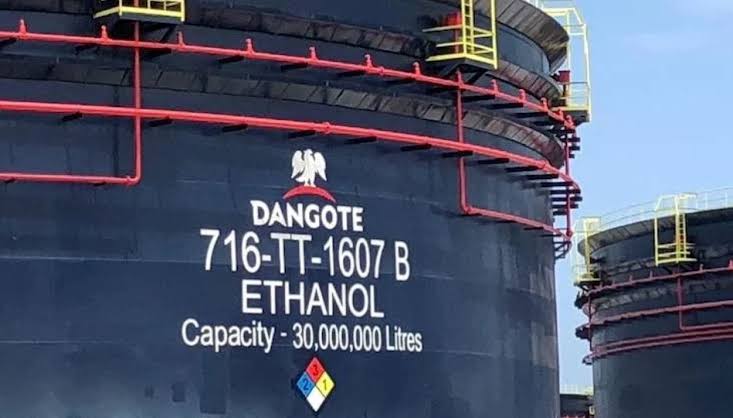Dangote Petroleum Refinery is making further strides in the global energy market, with three cargoes of jet fuel—equivalent to about 130 million liters—set for export to Saudi Arabia.
This move follows the refinery’s recent expansion into the U.S. market, where it shipped over two million barrels of jet fuel in March. The growing international demand for Dangote’s refined products underscores its rising influence in the energy sector.
Strengthening Global Reach
Data from ship-tracking platform Kpler reveals that six vessels carrying around 1.7 million barrels of jet fuel from Dangote Refinery arrived at U.S. ports this month. Additionally, the Hafnia Andromeda is scheduled to deliver approximately 348,000 barrels to the Everglades terminal on March 29.
With a refining capacity of 650,000 barrels per day, Dangote Refinery—the largest in Africa—is positioning itself as a major global supplier. Analysts attribute its success to the refinery’s high-quality products and increasing trust from international buyers.
“This is a remarkable achievement for Nigeria,” said Muda Yusuf, CEO of the Centre for the Promotion of Private Enterprises (CPPE). “Meeting the stringent quality standards of markets like the U.S. and Saudi Arabia highlights the refinery’s world-class operations.”
Impact on Global Jet Fuel Prices
The refinery’s entrance into the U.S. market coincides with maintenance-related shutdowns at refineries like Phillips 66 Bayway in New Jersey. Analysts believe that the additional supply from Nigeria could impact jet fuel prices, particularly as the U.S. approaches its peak summer travel season.
“The surge in supply from Nigeria is expected to lower jet fuel prices in the United States,” said Steven Barsamian, COO of U.S.-based storage brokerage firm TankTiger. “March imports of jet fuel into the U.S. have averaged about 226,000 barrels per day, the highest level since February 2023.”
Transforming Nigeria’s Economic Landscape
Beyond exports, Dangote Refinery is reshaping Nigeria’s economic outlook. Public policy expert Abimbola Oyarinu emphasized that had Nigeria developed its refining capacity earlier, it could have alleviated economic issues like inflation and unemployment.
“This is what we should have prioritized a decade ago,” Oyarinu noted. “Instead of exporting crude and importing refined products, we should have built refineries. Now, Dangote is not only saving Nigeria foreign exchange but generating revenue as well.”
Despite its achievements, the refinery still faces regulatory and operational challenges. Oyarinu warned that persistent barriers to business in Nigeria could deter future investments.
“The refinery is a game-changer, but Nigeria must create a more business-friendly environment,” he said. “If Dangote can succeed despite the odds, imagine what more could be achieved with the right policies in place.”
As Dangote Refinery continues expanding its reach, its impact on global markets and Nigeria’s economy will only become more significant.








Leave a Reply